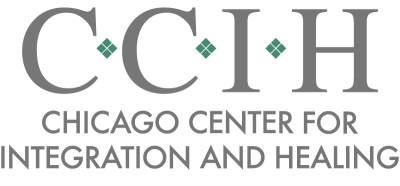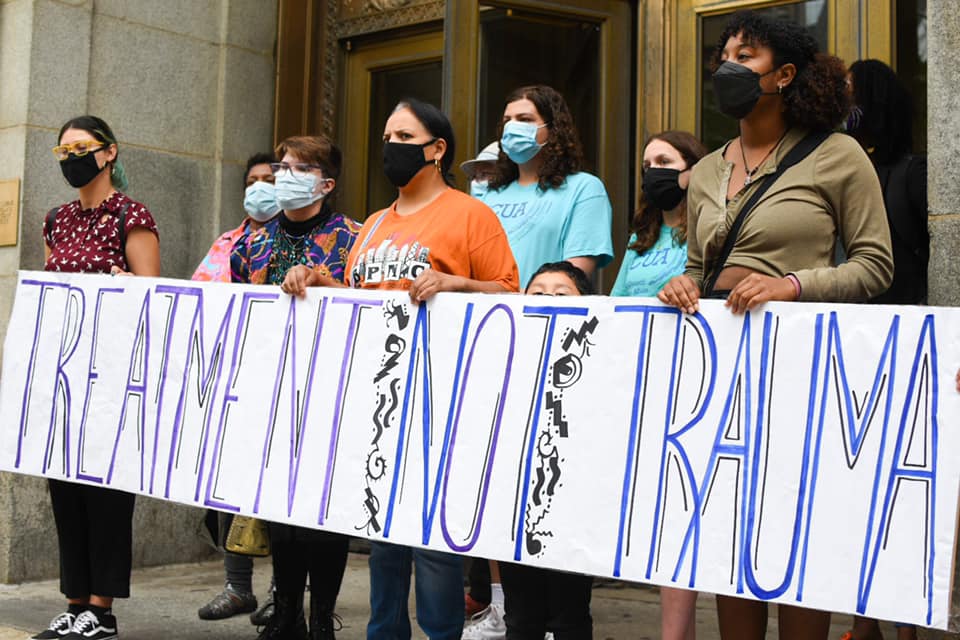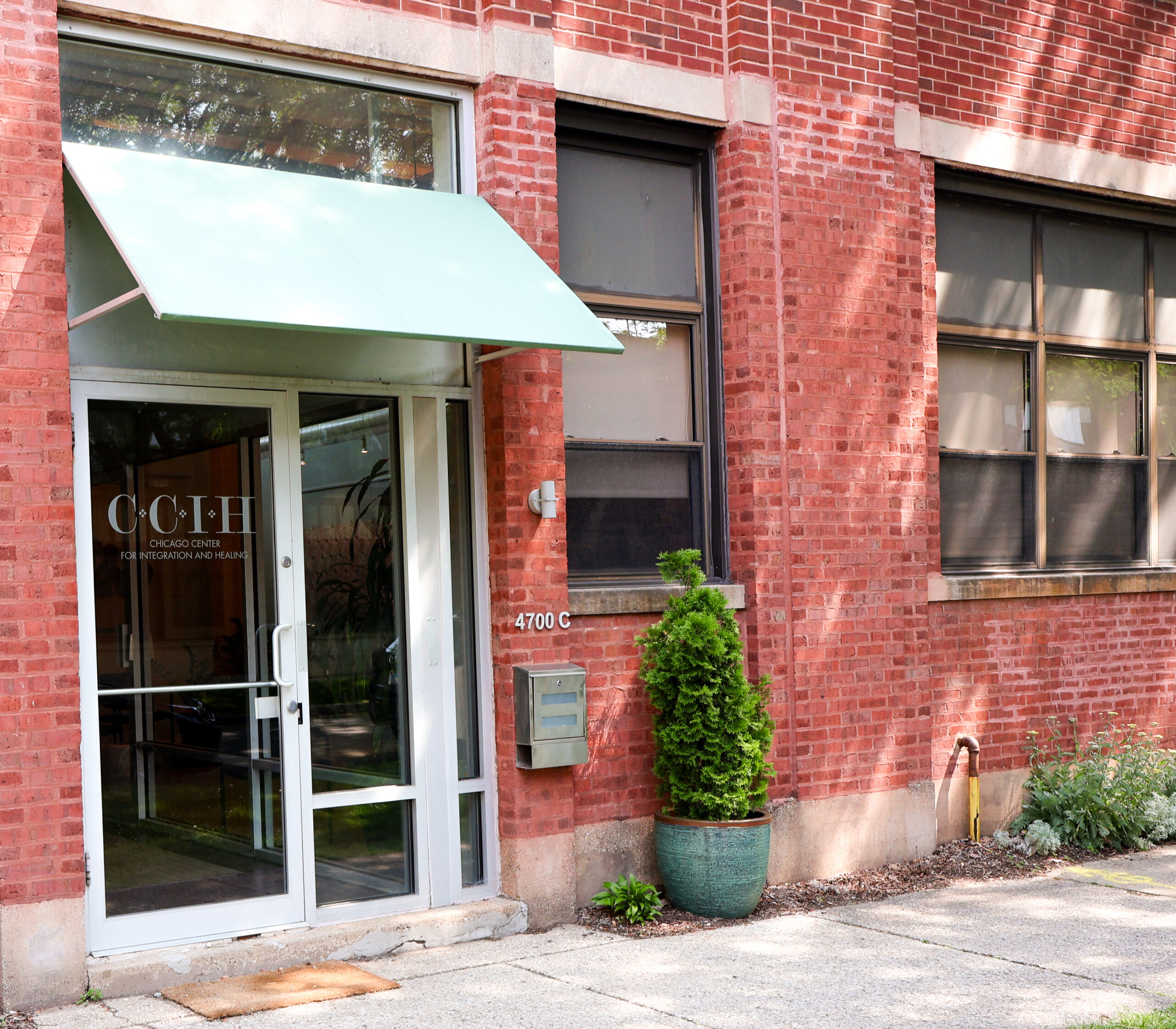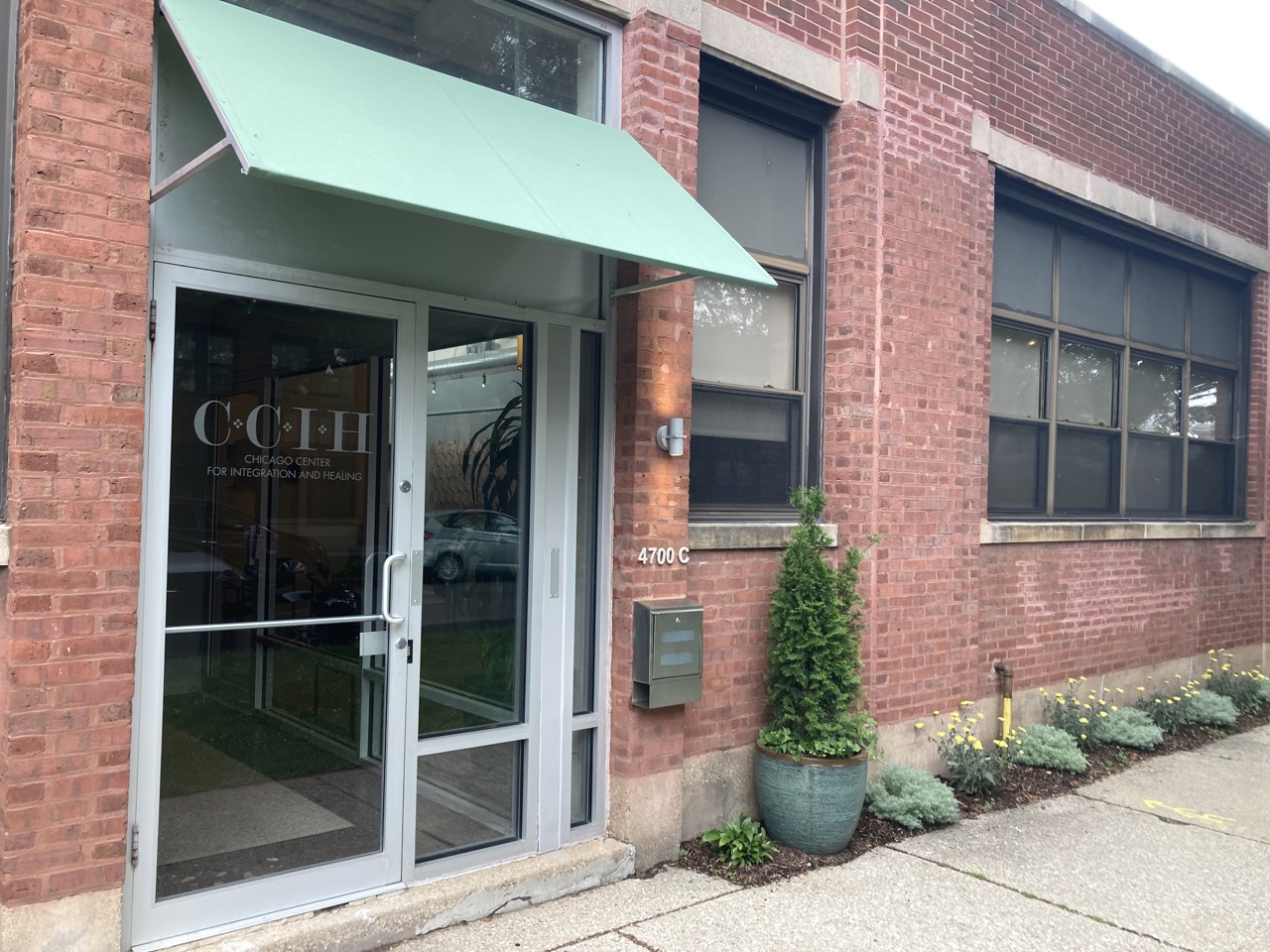There are currently only 5 community mental health clinics in all of Chicago. Half of the public clinics were closed or privatized in 2012 under Rahm Emmanuel, and before that, reduced from 19 clinics to 12 under Richard Daley. For the past 30 years, community mental health resources in the city have been stripped away, with closures disproportionately impacting neighborhoods on the south and west sides. Clinicians, organizers, advocates, and community members are coming together to demand a different future for mental health care in Chicago.
I recently attended a virtual teach-in by The Collaborative for Community Wellness to learn more about Treatment not Trauma, a campaign working for reinvestment in Chicago’s mental health infrastructure.
TNT demands
(1) the reopening of community mental health clinics in Chicago,
(2) investment in a non-police response to mental health crises and
(3) ongoing support for individuals in the aftermath of crisis.
The issues being addressed by TNT are intrinsically linked – “High rates of mental health 911 calls tend to be concentrated in areas where public mental health centers have closed, indicating that when there is limited access to mental health services, unmet needs escalate to the point of crisis.” (CCW, 2022). Mental health crisis calls in Chicago, including calls to 988, currently involve police. The city’s response to CCW’s demands for non-police intervention to mental health calls is a pilot program called CARE (Crisis Assistance Response and Engagement). CARE is a co-responder model – mental health professionals respond with police to crisis calls fielded by the 988 emergency number. TNT, and mental health professionals, recognize that the presence of police is inherently escalating, and dangerous for community members – 23% of all people killed in the U.S. by police officers displayed signs of mental illness.
Part of the resistance in enacting a non-police response to mental health crises is lack of adequate funding. Mayor Lightfoot and the CDPH have not applied for the federal funds needed to support a non-police crisis response. Join me in signing this petition, urging city officials to apply for the federal funds necessary to create a 24/7 non-police crisis response system.
Chicagoans deserve access to safe, comprehensive, and reliable public mental health services, as well as safety in reaching out for help in crisis situations – often the most vulnerable moments in one’s life. Learn more about Treatment not Trauma and how you can get involved here. Sign the petition urging city officials to apply for federal funds here. Follow CCW on Instagram and Twitter.
References:
Amam Z. Saleh, Paul S. Appelbaum, Xiaoyu Liu, T. Scott Stroup, Melanie Wall,
Deaths of people with mental illness during interactions with law enforcement,
International Journal of Law and Psychiatry, Volume 58, 2018, Pages 110-116, ISSN 0160-2527, https://doi.org/10.1016/j.ijlp.2018.03.003.
Collaborative for Community Wellness. (2022). Presentation: Treatment not Trauma/ Tratamiento no Trauma 101. https://docs.google.com/presentation/d/1QNbaSKFyJYUYH4kTfz8F7T4IJmzbxIJD1jzuMj0Irhw/edit#slide=id.p









